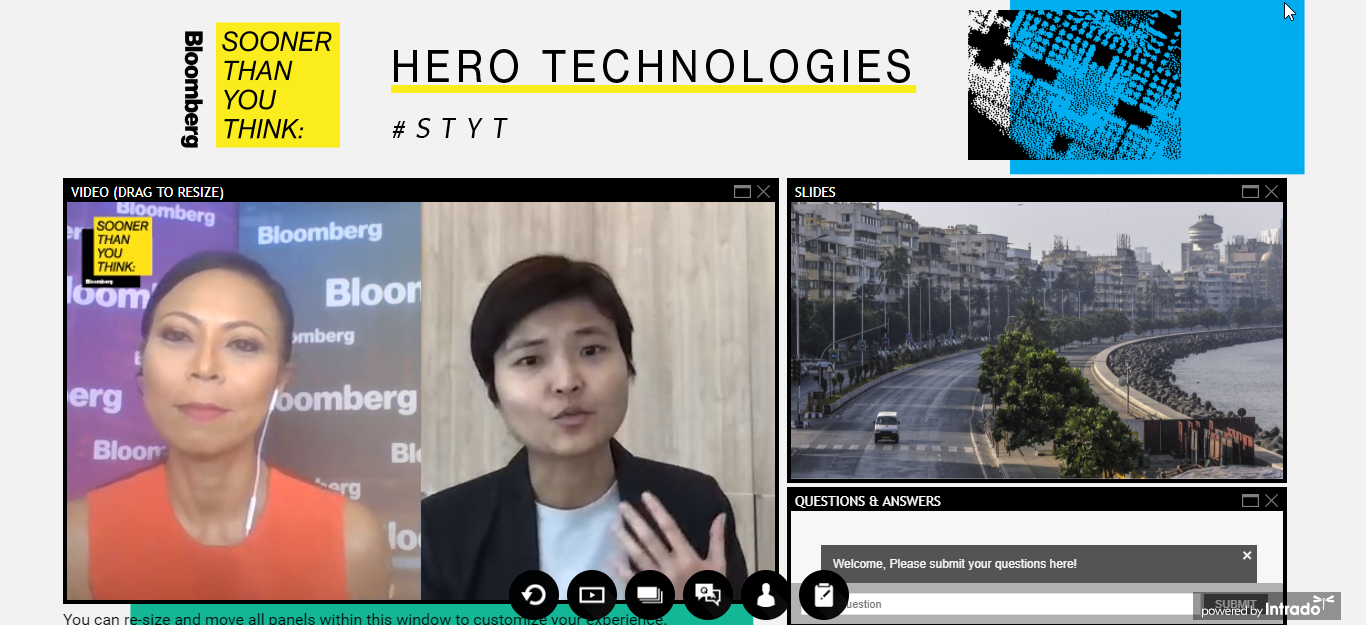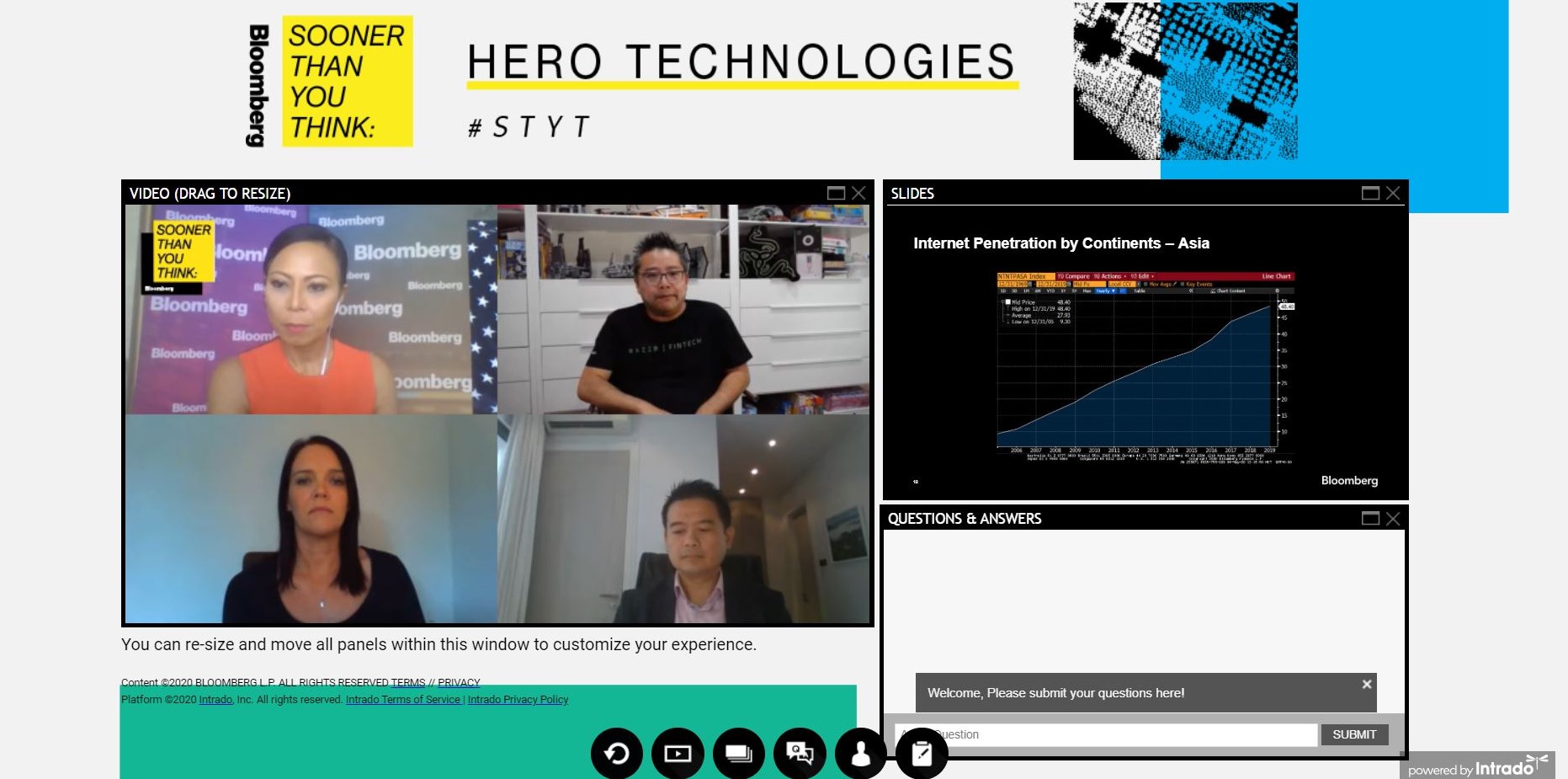The Covid-19 global pandemic caught the world off guard. The crisis roiled the markets and turned traditional business models upside down.
Companies are fighting back by harnessing the power of technology: manufacturers are pivoting production lines to pump out PPE, ride hailing services are ferrying sick passengers, internet companies are scaling rapidly to meet new demand, retailers and logistics companies are relying on contactless deliveries and payments while a number of communication tools is enabling the world’s largest work from home experiment.
At Sooner Than You Think, we looked at the indispensable “hero technologies” that have emerged during the crisis. We asked our guests – powerful players in the tech space – which ones are here to stay? Which ones will change our lives forever? Here are the key takeaways:

Be Flexible, Be Adaptable
Forget about traditional business models. We are living in unprecedented times that require companies to think outside the box. Many are using their existing infrastructure to provide goods and services that will help flatten the curve.
Grab, the ride hailing unicorn that operates in Southeast Asia is deploying its drivers to fill the gaps in the healthcare services sector.
Co-founder Hooi Ling Tan said she watched as healthcare workers, the heroes on the front lines, were shunned because of their proximity to patients. “We thought, that’s not how they should be treated,” Tan said. So, the company launched Grab Care, a dedicated, round-the-clock, on-demand service to enable healthcare professionals to travel back and forth from hospitals.
The Mclaren Group, known for its premium sports cars is now producing medical ventilators. Gaming company Razer is pivoting as well – it converted existing assembly lines in China to making surgical masks within 24 days.
The tech leaders agreed the only way to survive the challenges brought on by the pandemic is to adapt, innovate and be flexible.

It’s doomsday if you aren’t digital
Small and medium-sized businesses that have survived without any digital presence so far almost certainly won’t make it through the pandemic. As Grab’s Hooi Ling Tan said, for those who don’t have a digital strategy, it’s doomsday. Take the case of your typical wet market in Asia – the local bazaar where residents go for fresh fruit and vegetables— with so many cities under lockdown and people afraid to gather in crowded places, customers aren’t shopping there, leaving merchants looking for alternative ways to sell. Grab has played a crucial role in bringing these merchants online.
Sze Meng Soon, JD.com’s Southeast Asia President sees a future where offline and online experiences will converge. The company is helping local sellers get online, in some cases by waiving commissions and offering logistical support. At the other end of the retail spectrum, McLaren is also going digital. Ruth Nic Aoidh said the company’s dealers have started engaging with their customers online. McLaren is relying on virtual dealerships and organizing virtual inspection of cars. And even in a post-virus world when customers can return to physical dealerships, Nic Aoidh said she doesn’t see this digitization fading away. “I see it becoming complementary to the face-to-face environment that we were used to,” she said.

In Tech we Trust
“It’s not just about technology, it’s about trust,” said JD.com’s Sze Meng Soon. In February this year when the virus peaked in Wuhan, JD.com continued delivering products to the epicenter. The company worked with suppliers to make those people were getting essential goods even when hunkering down and he isn’t talking about drone deliveries. Since the same delivery workers had been dropping of parcels to residents for years, they were familiar folk. “The element of trust is really important. It’s not just about technology,” Soon said.
Trust is key to the relationship between governments and citizens. We’ve seen different approaches between the East and the West in using data to track Covid development. Countries like China, Singapore and south Korea have all deployed apps to track Covid cases. In China, an app called “Health Code” has become an integral part of the government’s plan to track and control Covid-19 cases. The app will produce a color depending on your travel history and whether you’ve been in close contact with a Covid patient, and determines where you can travel. In Hong Kong, all passengers landing at the airport are required to go through a mandatory Covid test, and are required to wear an electronic tracing wristband for a 14-day self-quarantine.
As Peter Elstrom, Bloomberg’s Executive Editor for Technology in Asia points out, these apps only work when the majority of the country uses them, which underpins the question about data privacy. “There’s a trade off,” Peter says. Are people comfortable giving up some off their personal data for the sake of the safety of the larger public? Are they comfortable giving their government so much personal information?These are challenges governments and tech companies are facing around the world – and no matter how advanced the technology gets, if there’s no trust, there’s not much of a chance of it becoming a success.
——————————
Join the Conversation: #STYT
Instagram: @BloombergLive
LinkedIn: Bloomberg Live
Twitter: @BloombergLive
Interested in more Bloomberg Live virtual events? Sign up here to get alerts.
——————————